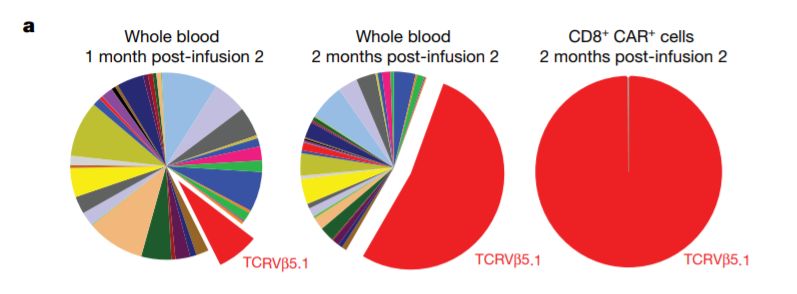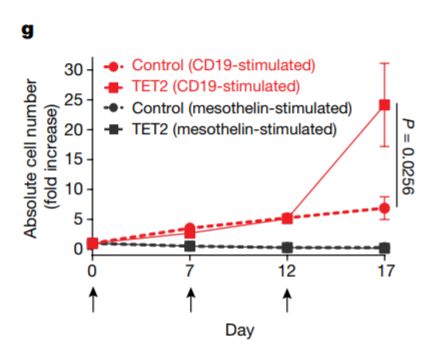Release date: 2018-05-31
Today, the top academic journal Nature has published a major study online. A research team led by Professor Cancer Immunotherapy, a bull and a pioneer of CAR-T therapy, unexpectedly discovered a genetic mutation that could overturn traditional CAR-T treatment. It is expected to cure patients with leukemia who are hopelessly treated.

â–²This study was from a team led by Professor Carl June (Source: Penn Medicine)
Readers who care about the pharmaceutical industry may know that CAR-T is a breakthrough anti-cancer therapy. It can separate immune T cells from patients, genetically engineer them in vitro, insert receptors that recognize cancer cell antigens, and then return them to patients. In the words of the image, scientists have put T cells on their own anti-cancer weapons, so that they can effectively eliminate cancer. In 2017, the first and second CAR-T therapies were approved by the US FDA, and the history of human cancer has opened a new chapter.
The advent of innovative anti-cancer therapies is naturally inseparable from rigorous clinical trials. In these trials, a patient with chronic lymphocytic leukemia caught the attention of researchers such as Professor Carl June. According to the trial plan, the patient will undergo 3 infusions of CAR-T cells. However, after receiving two treatments, his condition has not been effectively alleviated.

â–²This patient eventually developed a conditional relief (Source: Nature)
"Until the 50th day after treatment, the patient developed a cytokine release syndrome, indicating that CAR-T therapy has finally had an anti-tumor effect," said Professor J. Joseph Melenhorst, another head of the study. Subsequent medical image analysis confirmed this. After the last course of treatment, the patient's condition was thoroughly controlled. Since receiving treatment in 2013, he has been cancer-free for 5 years and has achieved clinical cure.
Despite the ideal therapeutic effect, the patient's tortuous experience has left researchers puzzling. In general, CAR-T therapy either works quickly or is completely ineffective. How can it take more than 50 days to suddenly take effect?
“This treatment is what we expect, but we can learn a lot from every patient,†Professor Carl June said. “We returned to the lab and wanted to know as much as possible what was going on behind us.â€

â–²The study found that a class of cells in the body of this patient took a dominant position (Source: Nature)
The analysis of this patient reveals a surprising fact that in his body, 94% of CAR-T cells actually come from the same ancestor! “This is a surprising discovery,†said Professor Joseph A. Fraietta, the lead author of the study. “This tells us that the lowest dose required for CAR-T therapy is just a cell!â€
What happened to this cell? Through sequencing, the scientists found that during the genetic modification process, the chimeric antigen receptor (CAR) sequence was accidentally inserted into a gene called TET2. Under normal conditions, TET2 controls the production of blood cells, avoiding their excessive proliferation. Once the structure of the TET2 gene is destroyed, the CAR-T cell begins to multiply rapidly, and the leukemia in the patient is eliminated by the way.

â–² Anti-CD19 CAR sequence was accidentally inserted into the TET2 gene (Source: Nature)
To confirm that the TET2 gene is key to the onset of CAR-T therapy, the researchers used shRNA to inhibit their expression. Sure enough, once the expression level of the TET2 gene was down-regulated, significant expansion of CAR-T cells occurred. Based on data obtained from patients and validation of in vitro experiments, the researchers concluded at the end that the inactivation of TET2 may contribute to the production of potent CAR-T cells. These cells not only work quickly, but also survive for a long time. They are optimistic that perhaps a single CAR-T cell is sufficient to effectively control the condition of patients with advanced leukemia. If this case can be repeated in more clinical trials, it will undoubtedly greatly shorten the preparation process of CAR-T cells and bring revolution to this therapy.

â–² inhibition of TET2 expression can promote the proliferation of CAR-T cells (Source: Nature)
Scientists say the discovery is a miracle brought by "a series of small probability events." After the mechanism is clarified, we look forward to witnessing the miracle again!
The title of this article is from Parker Institute
Reference materials:
[1] Disruption of TET2 promotes the therapeutic efficacy of CD19-targeted T cells
[2] CLL patient treated at Penn goes into remission thanks to single CAR T cell
Source: Academic Jingwei
Feed Additives Fruit Powder,Echinacea Purpurea Extract,Saccharomyces Cerevisiae Dextran,Polyphenols Echinacea Purpurea Extract
Fufeng Sinuote Biotechnology Co.,Ltd. , https://www.ffsinuoteplant.com